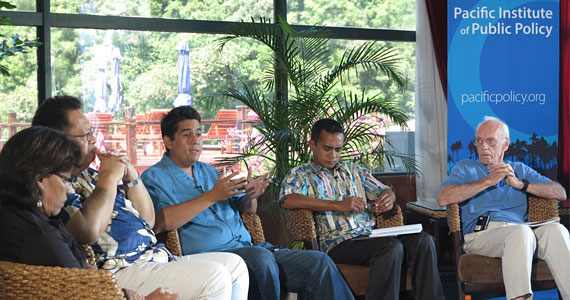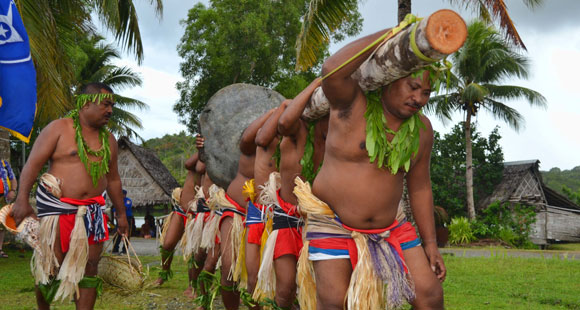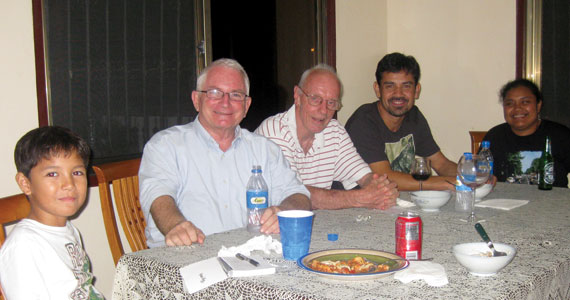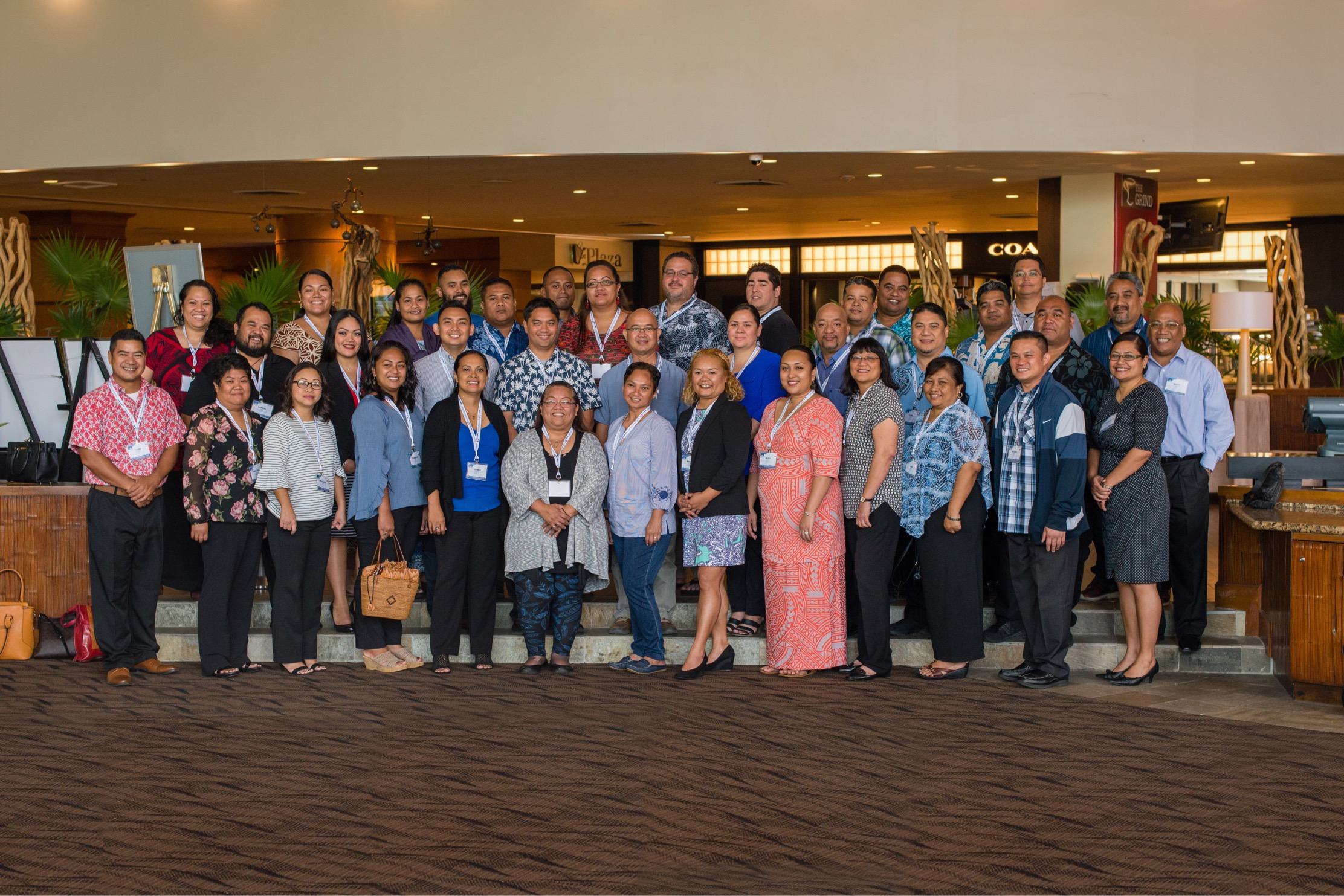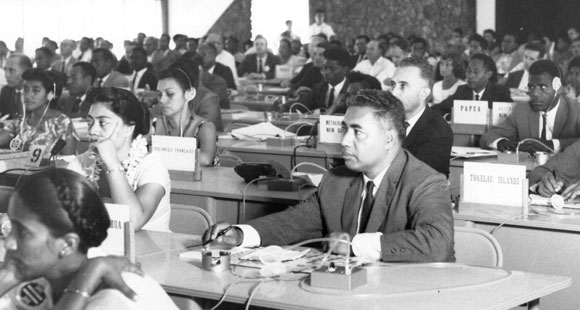Facing the Future: Forum in Palau
What are the major problems and opportunities in the development of small Pacific Island nations? What are the pathways for the future in Micronesia? What directions should governance take in the light of all this?
These were the questions posed in a televised three hour forum discussion held in Palau last week. The event was sponsored by Pacific Institute of Public Policy (PiPP), an NGO that has become a major player in the Pacific over the past few years. Surangel Whipps and Tiare Holme from Palau were on the panel, along with Kalafi Moala from Tonga and Hilda Heine from the Marshalls. I was the final member of the panel, but the audience of 50 or 60 people also had the opportunity to express themselves on these topics.
What are the major problems? My suggestion was long-term funding for the future, since the islands are far from achieving the self-reliant economy that we all envisioned when Palau, the Marshalls and FSM became sovereign nations. Not everyone agreed. In fact, hardly anyone seemed to subscribe to this view. Others on the panel and in the audience felt that with good leadership and strict accountability, and perhaps a little creative thinking, the islands could pay their own way in the future. If only we had the imagination to explore other off-beat ways of developing the economy–and if we avoided the waste that is so common in island governments, we would do just fine.
Many were more concerned with what some call cultural preservation. I don?t think this phrase hits it off too well, though, because what I heard was the plea not just to retain culture but to ensure that it remains fully operative in the lives of island people. To judge by the comments made at the forum, there?s no shortage of pride in the local culture in Palau or any of the other islands represented. For all that we complain about modernization and the introduction of a western political system to the islands, the local culture is one of the highest priorities of those who expressed themselves at the forum.
At the end of it all, I remained unchanged in my conviction that funding for the future was one of the major concerns. As much as you might tighten accountability and urge frugality, Pacific nations still have to reach deep in the pocket to find the money for education, health services and all the other services that a modern nation is expected to deliver to its people. A good education system is another priority, I feel, since the people?s future depends on this. I was deeply relieved to find everyone so serious about the development of their country and so ready to take responsibility for it. I was afraid that when people hear that there?s little chance of becoming totally self-reliant, they would let out a deep sigh of relief and settle down back into complacent consumption. Not in Palau. The refrain I heard was ?We can do it, no matter how high the odds, if only the government is trustworthy.? No complacency there.
The following day was Thanksgiving, a national holiday in Palau. As I shuttled from one home to another to taste the turkey while catching up with old friends, it was as if the forum was extended for a second day. ?Why did you say this?? someone would ask. ?What did you mean by that?? The earnest discussion on the future of small island nations continued all day long. I left on the flight that evening exhausted but happy that the forum had accomplished just what it had intended to do. It had stimulated a fruitful discussion among people who, whatever their faults, really do take the future seriously.

